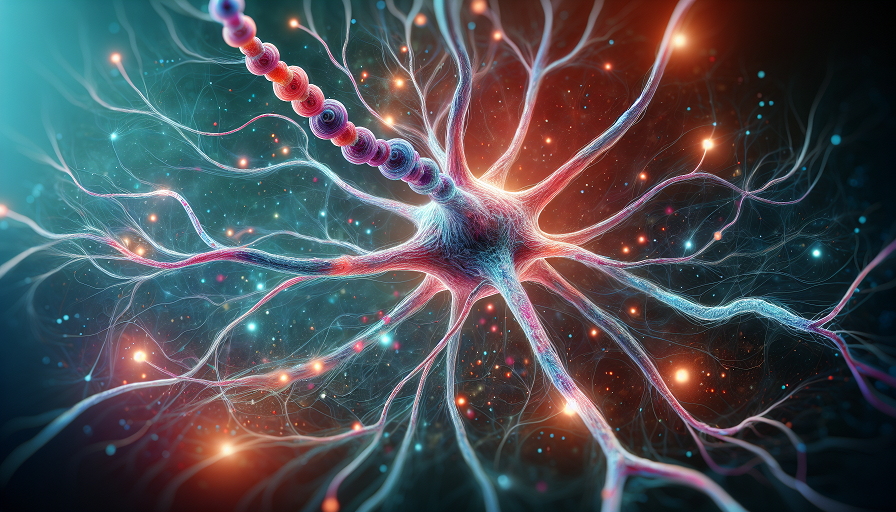
Ever notice how your favorite song can instantly boost your mood? Music does more than just entertain—it has powerful effects on the brain, influencing memory, emotions, and even overall cognitive function.
Whether you’re listening, playing an instrument, or singing in the shower, here are 10 incredible ways music impacts your brain.
Contents
- 1. Music Boosts Memory and Learning
- 2. It Enhances Mood and Reduces Stress
- 3. Music Increases Dopamine Levels (The Feel-Good Chemical)
- 4. It Improves Sleep Quality
- 5. Music Can Help Manage Pain
- 6. It Boosts Creativity
- 7. Music Strengthens Brain Connectivity
- 8. It Can Improve Language and Verbal Skills
- 9. Music Enhances Workout Performance
- 10. It May Protect Against Cognitive Decline
- Final Thoughts
1. Music Boosts Memory and Learning
Why it matters: Listening to music while studying can enhance memory retention and cognitive performance.
The science: Research shows that certain types of music, particularly classical and instrumental, can help improve focus and recall.
How to use it: Try listening to soft background music while reading or learning something new.
2. It Enhances Mood and Reduces Stress
Why it matters: Music can instantly shift your mood, helping reduce stress and anxiety.
The science: Listening to calming music lowers cortisol levels, the hormone responsible for stress.
How to use it: Play soothing music during stressful moments or before bedtime for relaxation.
3. Music Increases Dopamine Levels (The Feel-Good Chemical)
Why it matters: Music can trigger the release of dopamine, making you feel happier and more motivated.
The science: Studies show that listening to music you love can activate the brain’s reward system.
How to use it: Create a playlist of uplifting songs for when you need a mood boost.
4. It Improves Sleep Quality
Why it matters: Struggling with sleep? Music can help your brain relax and prepare for rest.
The science: Research suggests that listening to slow-tempo music before bed improves sleep efficiency and duration.
How to use it: Play soft, calming music 30 minutes before bedtime to signal your brain it’s time to unwind.
5. Music Can Help Manage Pain
Why it matters: Music therapy is often used to reduce pain perception and improve overall well-being.
The science: Studies show that music stimulates brain areas related to pain relief, acting as a natural analgesic.
How to use it: Try listening to relaxing music during recovery from injury or illness.
6. It Boosts Creativity
Why it matters: Certain types of music can enhance divergent thinking, which is crucial for creativity.
The science: Research suggests that upbeat and unfamiliar music can encourage new ideas and problem-solving skills.
How to use it: Listen to instrumental or ambient music when brainstorming or working on creative projects.
7. Music Strengthens Brain Connectivity
Why it matters: Playing and listening to music enhances neural connections between different brain regions.
The science: Musicians often have stronger connections between the left and right hemispheres of the brain.
How to use it: Learning to play an instrument can significantly improve cognitive function.
8. It Can Improve Language and Verbal Skills
Why it matters: Music and language processing share similar brain pathways.
The science: Research suggests that people who practice music have better verbal memory and pronunciation skills.
How to use it: Try listening to songs in different languages or singing along to improve pronunciation.
9. Music Enhances Workout Performance
Why it matters: Music can boost endurance, motivation, and focus during exercise.
The science: Studies show that listening to fast-paced music can improve physical performance and reduce fatigue.
How to use it: Create an energizing workout playlist to keep you motivated during exercise.
10. It May Protect Against Cognitive Decline
Why it matters: Music has been shown to slow cognitive decline in aging individuals.
The science: Studies suggest that listening to music regularly can help preserve memory and cognitive function in older adults.
How to use it: Engage in active music listening or play an instrument to keep your brain sharp.
Final Thoughts
Music is more than just entertainment—it’s a powerful tool for brain health, emotional well-being, and cognitive performance. Whether you’re using music to focus, relax, or stay motivated, incorporating it into your daily routine can have incredible benefits.
What’s your go-to song for boosting your mood? Share it in the comments below!
Interested in more brain health listicles? Go HERE

